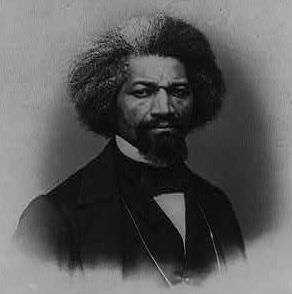Celebrating the Life and Legacy of Frederick Douglass, Libertarian Hero

Frederick Douglass, the great abolitionist who escaped from slavery and went on to become one of the most influential figures in late 19th century America, died on this date in 1895. A lifelong champion of individualism, economic freedom, and constitutional government, Douglass stands as one of America's greatest proponents of the principles of classical liberalism. We've written about Douglass repeatedly over the years here at Reason, and on today's anniversary of his death, we're proud to pay tribute once more by sharing two stories from the archives that celebrate his life and legacy.
Frederick Douglass, Classical Liberal: A fresh look at the political evolution of a great American.
It's true that Frederick Douglass simultaneously championed both civil rights and economic liberty. But the proper term for that combination isn't Social Darwinism; it's classical liberalism. The central component of Douglass' worldview was the principle of self-ownership, which he understood to include both racial equality and the right to enjoy the fruits of one's labor.
Consider the remarkable 1848 letter Douglass wrote to his old master, the slaveholder Thomas Auld. It rings out repeatedly with the tenets of classical liberalism. "You are a man and so am I," Douglass declared. "In leaving you, I took nothing but what belonged to me, and in no way lessened your means for obtaining an honest living." Escaping from slavery wasn't just an act of self-preservation, Douglass maintained; it was an affirmation of his unalienable natural rights. "Your faculties remained yours," he wrote, "and mine became useful to their rightful owner."
What Frederick Douglass Teaches Us About American Exceptionalism and the Growth of Freedom.
Douglass' genius was not in hailing or excoriating American in hyperbolic terms. Plenty of people before and after him have done that. To simply assert that the United States is the either most perfect or most depraved nation is a form of exceptionalism, to be sure. But it is also an indulgent gesture that presumes that we can't redeem ourselves or ever be held in error.
I think what resonates to this day is that Douglass was able to place America not simply in an international context but also to recognize that embracing freedom and liberty is a process that will continue to unfold and expand (or contract) over time.
The United States has much to be ashamed of as a nation and much to celebrate. But as we hurtle through history, what we need more than anything is a compass by which to chart future actions. Douglass' life and writings help provide that in a way few other examples can.


Show Comments (75)